Caribbean culture in living color
Fewer costumes in this year’s Carnival, but no lack of enthusiasm
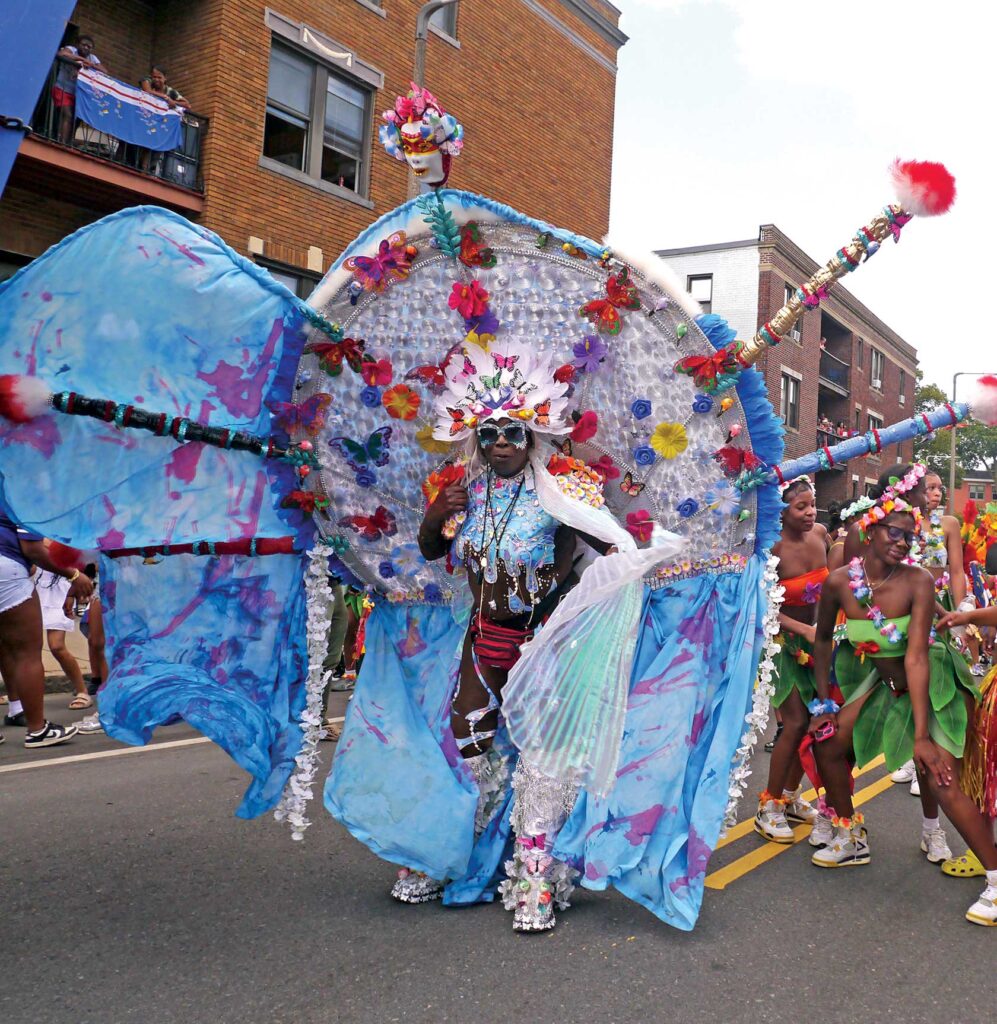
There was no army of masqueraders behind Ken Douglas as he danced along Warren Street toward the Caribbean Carnival judging stand by Franklin Park. There were a dozen or so costumed dancers with his masquerade band, Suave.
In some ways Douglas appeared to be swimming against the current, as he lugged his massive wheeled, 12-foot-high presentation along the up-hill parade route amid a procession of sound trucks leading T-shirt-wearing revelers. Costume bands like Douglas’ have declined precipitously in Boston’s Carnival from the days when a dozen or so of them competed with upwards of 120 masqueraders in tow. But Douglas is not giving up on Carnival.
“I’ve been doing this for years,” he said. “I’m going to keep at it until it builds back up to what it used to be.”
There are several reasons for the decline in masquerade bands — the dwindling number of people in the community with the space and the resources to host a masquerade “camp” where the costumes are assembled and, not the least, the decades-long struggle between some masqueraders and the leadership of the Boston Caribbean Carnival Committee.
“We need change,” said Michael Smith, who has in years past organized events around Carnival. “Every other carnival is doing well. But here in Boston, under this leadership, it’s gotten worse and worse.”
Robert George, a member of the Caribbean American Carnival Association of Boston, places the blame squarely on the costs of materials.
“It’s a direct result of the escalating costs of costume bands,” he said. “Especially with tariffs with China, it’s gotten a lot more expensive.”
But Smith compares Boston’s carnival to that in Toronto, where the city helps fund the masquerade bands and promotes carnival to tourists. Here in Boston, Smith says, the tourists who used to swell the ranks of the masqueraders and spectators have largely stopped coming.
Whatever the cause, the absence of the large bands that used to play masquerade in Boston’s Carnival — D’Midas International, D’Horizon, Dynasty Productions, the TnT Social Club — has left a void that has made Carnival far less colorful and much shorter than in years past.
Stepping into that void this year were three Haitian presentations that brought up the rear of the parade with unparalleled energy. Freda Rara, a band of long, well-tuned bamboo horns paired with a rhythm section of drums, maracas and other percussive instruments, made its debut this year with a couple dozen members skilled in Haitian rara music.
“This is our introduction to the community,” said bandleader Wan Pierre, yelling over the din of his musicians and the massive sound trucks that bookmarked his band.
The larger of the two sound trucks featured major Haitian acts — Michael Brun, Tony Mix, J. Perry and Jessie Woo.
Also new to Carnival was the Dominican masquerade band, Tribu Cibao, which featured well-rendered colorful costumes among two dozen or so revelers. The rest of the Carnival was made up of T-shirt bands — large sound trucks where revelers by the scores buy a T-shirt to dance behind to high-decibel soca tunes.
Amid the change, Ken Douglas said he’s determined to keep the uniquely Trinidadian tradition of Carnival masquerade bands and soca music alive. His band used the former D’Midas International camp at the corner of Seaver and Erie Streets — a 4,000-square-foot expanse of asphalt that comes with a shed that’s perfect for assembling and storing costumes.
“We’re not letting it go,” Douglas said. “We’re going to keep it going.”
This story originally appeared on flipsidenews.net.


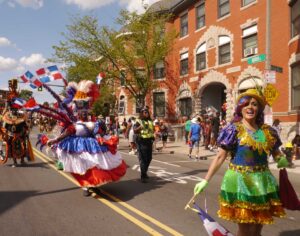


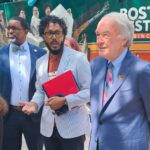

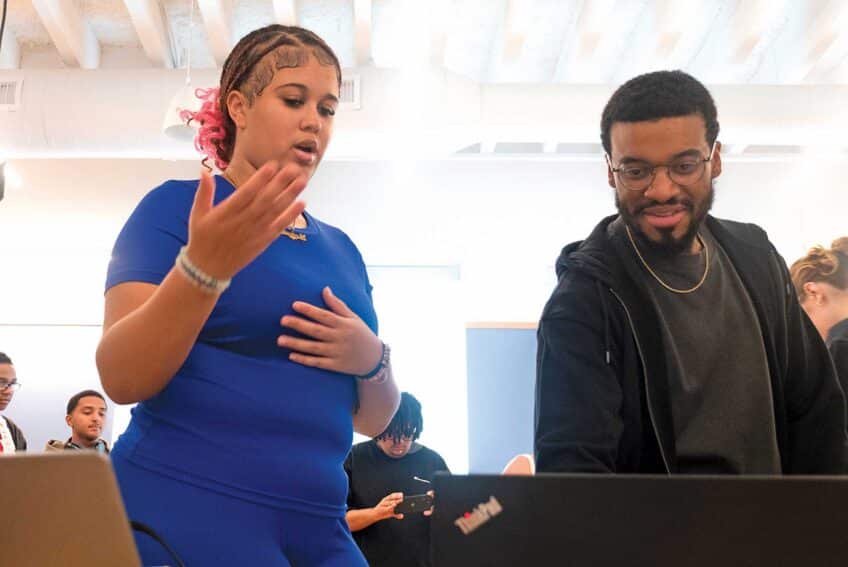
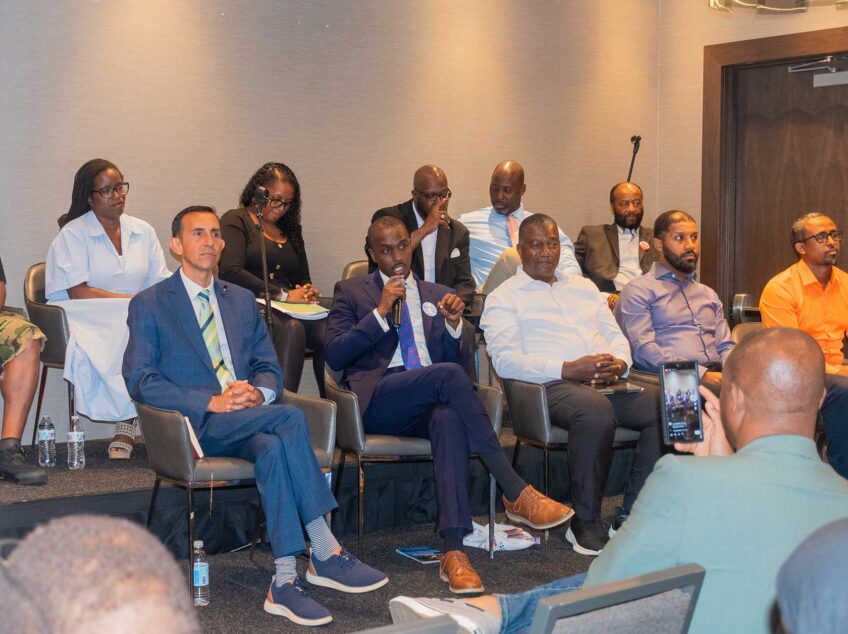
Leave a Reply
You must be logged in to post a comment.